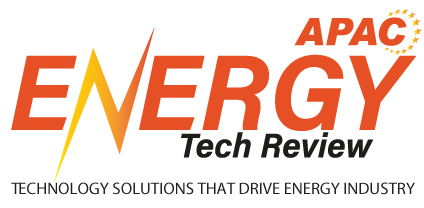Henry is a versatile engineering solution strategist and project management professional known for his commitment to integrity, accountability, and a strong work ethic. His track record includes consistently surpassing expectations and achieving outstanding outcomes in difficult circumstances. Over the course of his 20+ year career spanning across business development, engineering, project execution, and product management, he has strived to set a positive example by always prioritizing doing things correctly and ethically.
What are some of the major challenges in the energy consulting industry?
In the energy consulting industry, navigating the complexities of liquefied hydrogen (LH2) presents significant challenges, distinct from conventional energy sectors like liquefied natural gas (LNG). Regulatory complexity and specialized knowledge are paramount. Misapplying LNG-centric codes and standards, such as API standards, risks oversized and potentially hazardous LH2 systems. Compliance with specialized regulations and industry guidelines like OSHA 29 CFR 1910.119, NFPA 2, ISO-22734, CGA G-5, and SAE-J2601 ensures LH2 facility reliability, efficiency, and safety.
 Furthermore, the surge in LH2 interest, particularly from newcomers transitioning from the LNG sector, highlights the demand for consultants with deep operational expertise in cryogenic hydrogen. Given the unique challenges of handling hydrogen in its cryogenic state, consultants must differentiate between LNG and LH2 processes to avoid flawed economic and safety considerations. Effective risk management in cryogenic hydrogen facilities necessitates prompt leak detection and isolation during design, requiring consultants to leverage robust detection management and process control capabilities.
Furthermore, the surge in LH2 interest, particularly from newcomers transitioning from the LNG sector, highlights the demand for consultants with deep operational expertise in cryogenic hydrogen. Given the unique challenges of handling hydrogen in its cryogenic state, consultants must differentiate between LNG and LH2 processes to avoid flawed economic and safety considerations. Effective risk management in cryogenic hydrogen facilities necessitates prompt leak detection and isolation during design, requiring consultants to leverage robust detection management and process control capabilities.
Escalating costs pose another substantial challenge for the clean hydrogen industry, threatening its progress. Energy consultants are pivotal in driving global clean hydrogen growth through infrastructure scaling, technological efficiency enhancements, and widespread adoption. This entails a focused effort on reducing the levelized cost of hydrogen (LCOH) to ensure its viability as a cornerstone of sustainable energy systems worldwide. Additionally, the shortage of individuals with a solid operational background in cryogenic hydrogen highlights the need for intensified education and training efforts for energy consultants in this specialized field. Consultants must grasp the distinctions in handling cryogenic hydrogen, especially during transitions from different backgrounds, to effectively address the industry's challenges.
How do you see the energy consulting industry evolve over the next few years?
In envisioning the trajectory of the energy consulting industry, we're witnessing a profound evolution where electrons, molecules, and bytes converge to redefine our relationship with energy. Gone are the days when energy was merely about power generation; today, it's a complex interplay of interconnected systems shaping our daily lives in multifaceted ways. Disentangling from this intricate web is increasingly challenging as these elements fuse tighter with each passing moment.
The energy consulting sector is at the forefront of this transformative journey, poised for unparalleled expansion. The emergence of hydrogen as a linchpin in decarbonization strategies, bolstered by impactful governmental initiatives like the IRA in the United States, is reshaping the industry's landscape. Collaborative efforts across nations are paramount as we confront diverse challenges, with Asia, particularly Singapore, emerging as a beacon of progress, especially in domains such as marine transportation. The exponential growth of data centers is intricately linked to the expanding energy demands, underscoring the critical interplay between digital infrastructure expansion and energy consumption trends.
“In the journey towards a hydrogen economy, unity among all sectors - production, conversion, storage, distribution, and end-use - is the key. The promise of a brighter future beckons, but it demands our unwavering dedication. I firmly believe that this transition is vital for the survival of humanity, and each one of us has a crucial part to play”
In the realm of trade, discussions are pivoting decisively towards redirecting clean energy flows from production hubs to demand centers. Energy consulting firms are pivotal in guiding this shift, offering expertise on renewable energy integration, digitalization, and resilience, thereby spearheading tangible initiatives that propel sustainability agendas forward.
The global adoption of hydrogen is not a localized effort; it's a unified action against climate change. This is evident in the Hydrogen Insights report by the Hydrogen Council, which highlights a burgeoning pipeline of hydrogen projects worldwide, exceeding 1,400. This signifies a collective investment commitment of USD 570 billion, underlining the global scale of this transition.
Europe leads in project numbers, closely followed by North America, with a substantial portion progressing beyond final investment decisions. Investments are increasingly channeled into engineering and design, signaling a steadfast dedication to project realization.
The milestone achievement of electrolysis deployment surpassing the 1 GW mark is not just a number; it's a symbol of significant strides in scaling up infrastructure for low carbon intensity hydrogen production. These advancements underscore hydrogen's escalating importance in the global energy transition, driving a paradigm shift towards nuclear, renewable, and carbon-neutral sources. This shift is especially significant after the conclusion of COP28, marking a new era in our energy landscape.
Any specific piece of advice that you'd like to share with your fellow peers or other industry leaders?
In our pursuit of a clean energy-powered future and the transformation of our energy landscape, it's imperative to emphasize practical, scalable solutions. Each stride forward represents a dedication to emission reduction and the sustainability of our initiatives. Continuous learning serves as our compass, illuminating the vast potential inherent in embracing this energy transition. We stand as pioneers, understanding that collaboration across diverse sectors is key to unlocking the true potential of our collective efforts.
Every link in the value chain is indispensable, akin to the components of a symphony contributing to its harmony. Therefore, meticulous attention to detail, from technology readiness to project bankability, ensures the success and reliability of our endeavors.
As we progress, let us unite in our commitment, extending from production to end-use applications. The urgency of this transition extends beyond a hopeful future; it's about the survival of humanity and our planet. Let our dedication remain steadfast, our resolve unyielding, as we optimize the entirety of our value chain, refusing to settle for anything less than excellence.
The world relies on our unwavering commitment.












